Mobile game development has taken the gaming industry by storm, and with the ever-increasing number of mobile devices, the market for mobile games continues to grow rapidly. Creating a successful mobile game requires a carefully planned and executed development process, starting from conceptualization to launching the game on app stores. In this article, we will explore the key steps involved in the mobile game development process, from creating a game plan to finding the right mobile game development software and releasing your mobile game. We will also discuss the importance of investing in mobile game development, the cost involved, and the top mobile game engines available to game developers.
How to Make a Mobile Game?
Making a mobile game is a fun and exciting process, but it requires careful planning and execution to ensure its success. There are several steps involved in the mobile game development process, and understanding them can help you create a high-quality game that people will love to play. Each step requires attention to detail and a deep understanding of the mobile gaming industry, from creating a game plan to releasing your game on app stores. We will explore the key steps in making a mobile game and provide insights into the tools and resources needed to create a successful game.
Make a Game Plan
Making a game plan is the first step in creating a successful mobile game. It involves defining the game concept, target audience, game mechanics, storyline, and game design. This plan serves as a blueprint for the entire development process, helping to keep the team organized and on track. A well-planned game is more likely to succeed in the competitive mobile game market.
Find the Right Mobile Game Development Software
Choosing the right mobile game development software is essential to creating a successful mobile game. With so many options available, it can be challenging to determine which one is the best fit for your game development needs. Factors such as platform compatibility, programming languages, and cost are just a few considerations to consider when selecting game development software. In this stage, you must take the time to research and evaluate different best game engines and tools before making a final decision. By finding the right development software, you can ensure that your game is built efficiently and with the necessary features to stand out in the competitive mobile game market.
Starting your Mobile Game Development Project
Starting your mobile game development project is an exciting but challenging journey. Once you have your game plan and software, it’s time to implement everything. This involves developing the story, game mechanics, characters, and environment. You need to create a game that is engaging, fun, and easy to navigate while considering the technical limitations of mobile devices. To ensure a successful mobile game development project, you must clearly understand your target audience, platform requirements, and development timeline. With the right planning and execution, you can create a high-quality mobile game that many will enjoy.
Elevate Your Play
“Elevate Your Play” is a phrase that represents the game development stages after the initial planning and development stages. At this stage, the focus is on refining and enhancing the game’s design and mechanics to create a polished and engaging gameplay experience. This involves testing the game with real players, receiving feedback, and making necessary improvements to the game’s functionality, balance, and overall feel. It also includes improving the game’s visuals and sound effects to make it more appealing to users. The ultimate goal is to make the game stand out among other mobile games and provide players with a unique and enjoyable experience.
Releasing your Mobile Game
Once your mobile game is completed, it’s time to release it to the world. There are several platforms for releasing mobile games, including Apple’s App Store and Google Play Store. It’s important to follow the submission guidelines for each platform carefully, ensuring that your game meets all of the requirements. This includes things like having appropriate content ratings and adhering to the platform’s design guidelines.
Marketing your game is also an important part of releasing it. You can use social media, influencer partnerships, and other promotional methods to help generate buzz and attract players to your game. It’s important to have a strong marketing strategy to ensure your game gets the attention it deserves.
Finally, be sure to keep track of user feedback and address any issues that arise as quickly as possible. Regular updates can help keep players engaged and improve the overall experience of your game. By staying on top of these factors, you can increase your chances of success in the highly competitive mobile gaming market.
How Long Will it Take to Create a High-quality Mobile Game?
Creating a high-quality mobile game can take anywhere from several months to a few years, depending on various factors. These factors include the complexity of the game, the size of the development team, the expertise of the team members, the tools and technologies used, the availability of resources, and the budget allocated for the project.
The mobile game development process typically involves several stages, including planning, prototyping, designing, developing, testing, and launching. Each of these stages requires a significant amount of time, effort, and resources to complete successfully.
In general, simple mobile games with basic features can be developed and launched within a few months, while more complex games with advanced features and graphics may take a year or more to develop. However, it’s essential to keep in mind that rushing the development process can result in a subpar game, so it’s crucial to take the necessary time to create a high-quality game that will provide an enjoyable experience for players.
Why Invest in Mobile Game Development?
Mobile game development has become a lucrative industry in recent years and for good reason. With the rise of smartphones and tablets, there has been an explosion of interest in mobile games, making it a highly profitable business opportunity for developers. Furthermore, the portability and accessibility of mobile devices have made mobile games more accessible to a wider audience, increasing the potential for revenue.
Investing in mobile game development can also bring several benefits, including improved brand recognition and increased customer engagement. A well-designed and popular mobile game can help build a loyal following for a brand and create a positive association with the company.
Additionally, mobile games can be used as a marketing tool to attract new customers and retain existing ones. Companies can generate buzz and attract new customers to their products and services by offering free or low-cost games.
Moreover, mobile games can generate revenue through in-app purchases, advertising, and sponsorships, making it a profitable developer venture. As such, investing in mobile game development can be a wise business decision with potentially significant returns on investment.
How Much Does it Cost to Create a Gaming App?
Creating a mobile game can be a rewarding experience, but it’s important to understand the costs involved. The cost of developing a gaming app can vary widely depending on the complexity of the game and the features you want to include. Factors that can affect the cost of creating a mobile game include the platform you want to develop for, the technology you choose, the team you hire, and the time required to complete the project.
On average, it can cost anywhere from $10,000 to $500,000 or more to create a mobile game. Simple games with basic features like 2D graphics and limited functionality can be developed for a lower cost, while complex games with advanced features like 3D graphics and multiplayer capabilities can require a much larger investment.
To keep costs under control, it’s important to have a clear understanding of your goals and requirements before you begin development. This can help you choose the right technology, platform, and development team for your project and ensure that you stay within your budget while still delivering a high-quality gaming experience.
The Top Mobile Game Engines
Mobile game engines are essential tools for game developers to create mobile games efficiently. They provide a framework for creating games with built-in features such as physics engines, graphics rendering, and input handling. Several mobile game engines are available in the market, each with its own strengths and weaknesses. Let’s explore the top mobile game engines, their features, and the types of games they are best suited for.
Unity


Unity is one of the most popular and widely used game engines for developing mobile games. It’s a cross-platform engine that can be used to develop games for multiple platforms, including iOS, Android, and more. Unity’s user-friendly interface and extensive documentation make it a great choice for experienced developers and beginners. It supports various programming languages like C#, JavaScript, and Boo. Unity also offers a large library of pre-built assets and plug-ins, which can be used to speed up the development process. It is highly versatile and suitable for developing 2D, 3D, and even VR games. Its powerful graphics engine, physics engine, and animation tools allow developers to create high-quality, immersive gaming experiences.
Unreal


Unreal Engine is a popular game engine that was first introduced by Epic Games in 1998. It is a powerful tool that is widely used for developing games across multiple platforms, such as PC, consoles, mobile devices, and virtual reality devices. The engine provides a comprehensive set of tools for game development, including a visual scripting system, advanced physics simulation, and a high-end rendering system. It also offers a range of features for creating complex environments, realistic lighting and shadows, and dynamic audio effects. With its user-friendly interface, extensive documentation, and strong community support, Unreal Engine is a top choice for many game developers looking to create high-quality games.
Solar2D


Solar2D is a free, open-source game engine that can be used for developing mobile games for iOS, Android, and other platforms. It is a popular choice for indie game developers due to its ease of use and quick development times. Solar2D provides a Lua-based API that allows developers to create highly optimized and efficient games. It also supports a wide range of plugins and extensions, making it highly customizable and adaptable to a variety of game development needs. The engine’s community is active, with many tutorials and resources available to help new developers get started. Overall, Solar2D is a powerful and flexible game engine that can be used to create high-quality mobile games with minimal effort.
SpriteKit
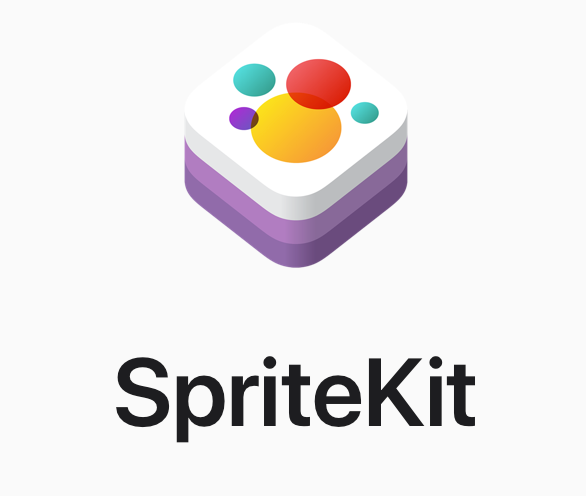

SpriteKit is a powerful and popular game engine developed by Apple, specifically tailored for iOS and macOS game development. As part of Apple’s ecosystem, it seamlessly integrates with Xcode, making it an ideal choice for developers who want to create immersive and visually appealing games for Apple devices. SpriteKit excels in 2D game development, providing an extensive set of tools for creating engaging gameplay, handling physics simulations, managing animations, and supporting various audio and video formats. Its high-performance 2D rendering engine ensures smooth and fluid animations, while its easy-to-use API allows developers to quickly prototype and implement game mechanics.
Buildbox


Buildbox takes a unique approach to game development by offering a no-code platform that allows users to create games without any programming knowledge. Its drag-and-drop interface empowers developers of all levels to bring their game ideas to life without getting bogged down in complex coding tasks. With Buildbox, creating levels, designing characters, and setting up game mechanics becomes an intuitive process, accelerating the development cycle and allowing developers to focus on the creative aspects of their projects. The engine comes with a rich library of pre-built assets, animations, and effects, making it particularly appealing to indie developers and those new to game development. While Buildbox is primarily suited for 2D games, it is a powerful tool for rapid prototyping and can be used to create a wide range of game genres, including platformers, puzzles, and endless runners.
Construct 3
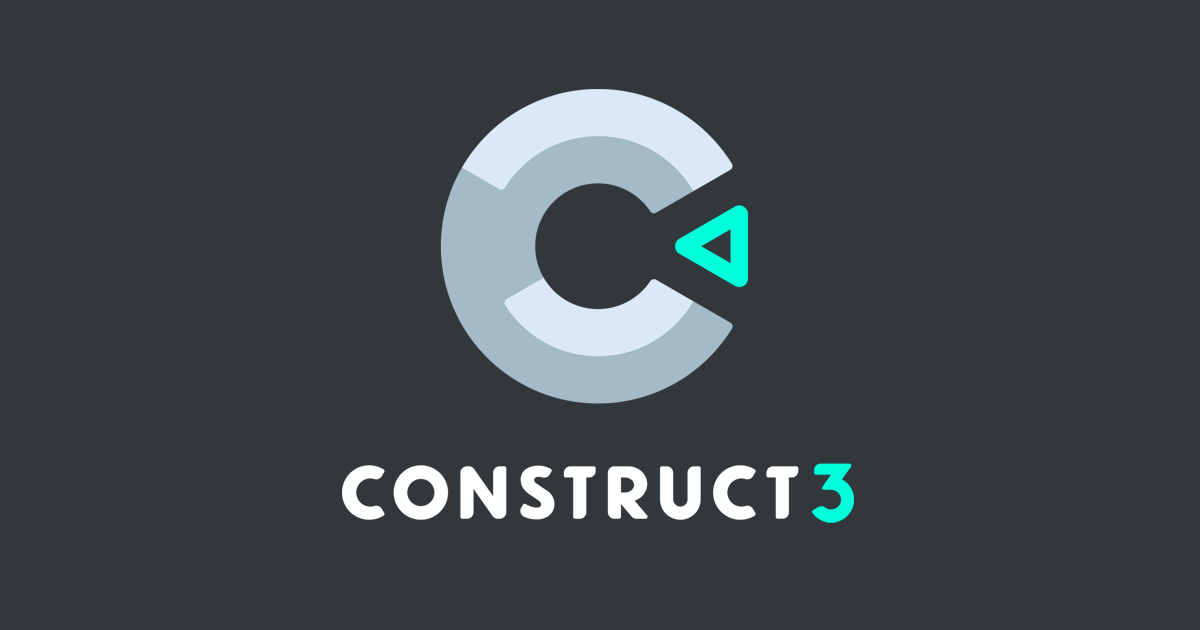

Construct 3, powered by HTML5, is an accessible and versatile game engine catering to both 2D and 3D game development. Its standout feature is the visual scripting system, which uses a node-based approach to allow developers to create complex game logic and interactions without writing a single line of code. This intuitive interface enables developers of all skill levels to build interactive games quickly and efficiently. Additionally, Construct 3 offers real-time collaboration, a feature that sets it apart from many other game engines. Multiple developers can simultaneously work on the same project, making it an ideal choice for teams or individuals collaborating on mobile game development. With its export options for various platforms, including iOS and Android, Construct 3 provides a solid foundation for building mobile games that can reach a wide audience.
AppGameKit


AppGameKit is a versatile game development engine known for its ease of use and cross-platform capabilities. It empowers developers to create 2D and 3D games with minimal coding, making it an excellent choice for beginners. Its support for multiple platforms, including iOS, Android, Windows, and more, allows developers to reach a broad audience with their creations.
Fusion 2.5


Fusion 2.5, also known as Clickteam Fusion, is a game development engine that specializes in 2D game creation. It employs a visual programming system, which makes it accessible for both beginners and experienced developers. Fusion 2.5 is known for its rapid game development capabilities and has been used to create a wide range of 2D games, from platformers to puzzle games.
GameMaker Studio 2
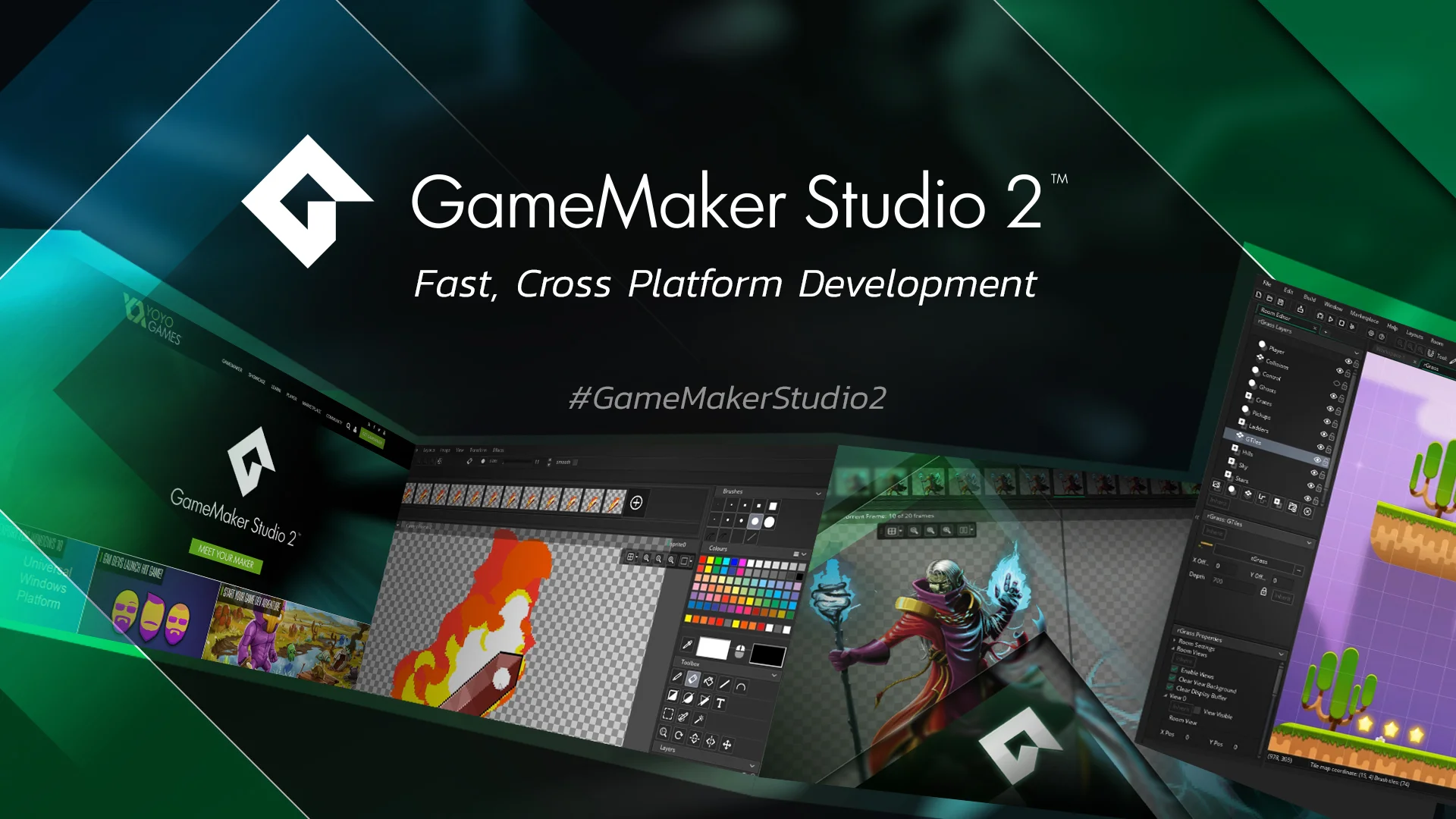

GameMaker Studio 2 is a popular game engine that caters to both 2D and 3D game development. It offers a user-friendly drag-and-drop interface along with a scripting language (GML) for advanced developers. GameMaker Studio 2 is well-regarded for its versatility and is responsible for the creation of numerous successful indie games.
MonoGame


MonoGame is an open-source, cross-platform framework that is ideal for developers looking to create 2D and 3D games with .NET and C#. It is a successor to Microsoft’s XNA framework and provides a powerful foundation for game development on platforms like Windows, iOS, Android, and more. MonoGame is favored by developers who appreciate the flexibility of coding in C#.
Amazon Lumberyard


Amazon Lumberyard is a game engine with a focus on immersive and visually stunning 3D experiences. It offers integration with Amazon Web Services (AWS), making it suitable for large-scale multiplayer and online games. Lumberyard’s robust graphics and networking capabilities are well-suited for creating ambitious game projects.
Cocos2d-x
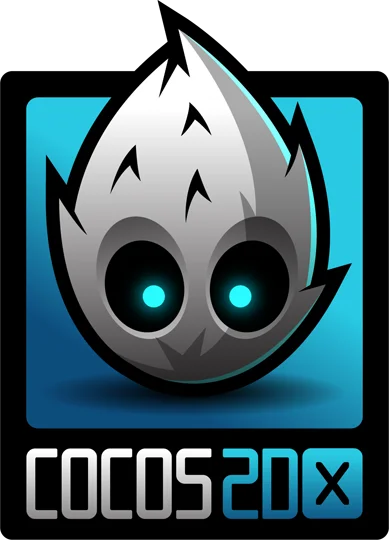

Cocos2d-x is an open-source, C++-based game development framework primarily used for 2D game creation. It supports multiple platforms, including mobile devices and desktop systems. Cocos2d-x is celebrated for its efficiency, performance, and a strong developer community that continually enhances its capabilities.
Haxe 4
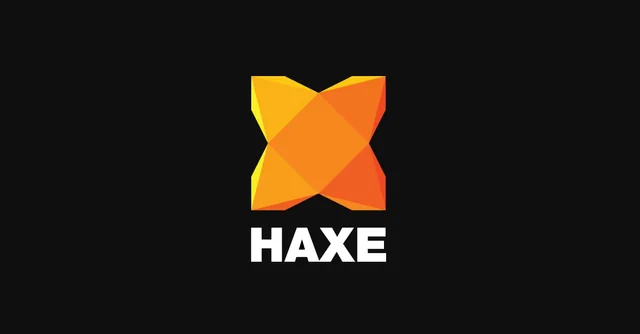

Haxe is a cross-platform toolkit and programming language designed for creating games and applications. It is notable for its flexibility, allowing developers to target various platforms with a single codebase. Haxe 4 simplifies multi-platform development by offering powerful abstractions and compilation to several languages, including JavaScript, C++, and more.
What is the Best Programming Language for Mobile Games?
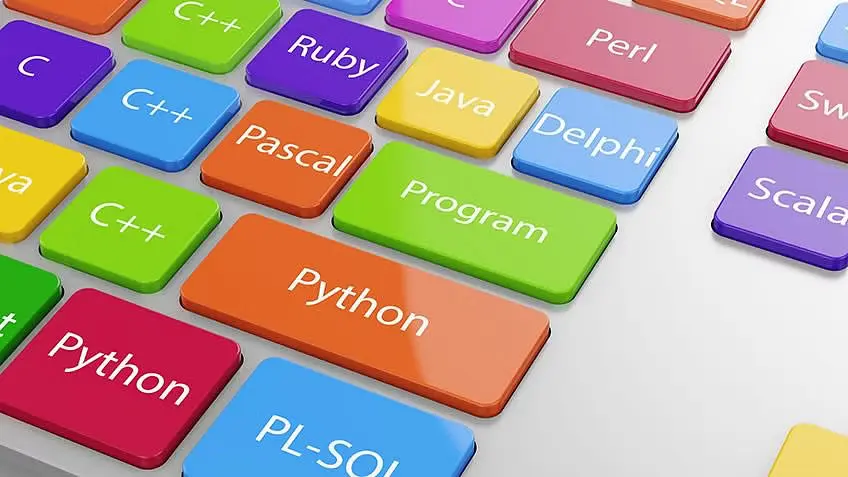

The best programming language for mobile games depends on various factors such as the game’s complexity, platform, and the developer’s expertise. Three popular programming languages commonly used for mobile game development are:
- C#: C# is the primary programming language used in Unity, a powerful game engine for both 2D and 3D mobile game development. It offers a high level of performance and versatility, making it suitable for a wide range of game genres. Additionally, Unity allows developers to export games to various platforms, including iOS and Android, making it a popular choice for cross-platform development.
- Java: Java is widely used for Android game development, as it is the official programming language supported by the Android platform. It provides a robust and flexible environment for building Android games, and developers can access a vast array of libraries and resources specific to the platform.
- Swift: Swift is the recommended programming language for iOS game development. It is developed by Apple and is optimized for building applications for iOS devices. With its clean syntax and powerful performance, Swift allows developers to create engaging and visually impressive games for the iOS platform.
Storytelling in Mobile Games


Storytelling in mobile games plays a pivotal role in engaging players and enhancing the overall gaming experience. While the limitations of mobile platforms may seem challenging, they have led to the emergence of innovative narrative techniques. Mobile game developers often employ shorter, episodic narratives that align with players’ on-the-go lifestyles. These narratives are carefully crafted to deliver impactful moments in shorter bursts, catering to players’ time constraints.
Furthermore, interactive storytelling has flourished in mobile gaming. Players can make choices that influence the direction of the story, allowing for a personalized experience. This interactivity fosters a deeper emotional connection between players and the game world. Immersive storytelling can also drive player retention and word-of-mouth recommendations, critical factors in the mobile gaming industry.
The Role of Gameplay Mechanics in Mobile Games
Gameplay mechanics are the heart and soul of mobile games, defining how players interact with the game world. Mobile game developers must strike a balance between approachable mechanics and engaging challenges. The touch screen interface has led to the evolution of intuitive mechanics that leverage gestures and swipes. This accessibility enables players of all skill levels to jump into the game effortlessly.
Incorporating social and multiplayer mechanics has also become a hallmark of successful mobile games. Players can compete with friends, collaborate on challenges, or simply share their experiences, fostering a sense of community. Additionally, in-game purchases and microtransactions have become integral to gameplay mechanics, offering players the option to enhance their experience through customization and progression.
As mobile gaming continues to evolve, the fusion of storytelling, innovative technologies, and engaging mechanics will shape its trajectory. Mobile game developers must stay attuned to these trends to deliver experiences that captivate and delight players in an ever-evolving digital landscape.
The Future of Mobile Game Development
The future of mobile game development promises exciting advancements, fueled by technological innovations and shifting player expectations. Augmented reality (AR) and virtual reality (VR) are poised to redefine the mobile gaming landscape, offering immersive experiences beyond the confines of traditional screens. These technologies will enable developers to create games that blend the digital and physical worlds, providing new avenues for gameplay and storytelling.
Moreover, advancements in hardware will empower developers to create more graphically impressive and complex games. As devices become more powerful, mobile games will approach console-quality visuals, offering players a high-fidelity experience on the go. Cross-platform play and cloud gaming are also on the horizon, allowing players to seamlessly transition between devices and access their games from anywhere.


